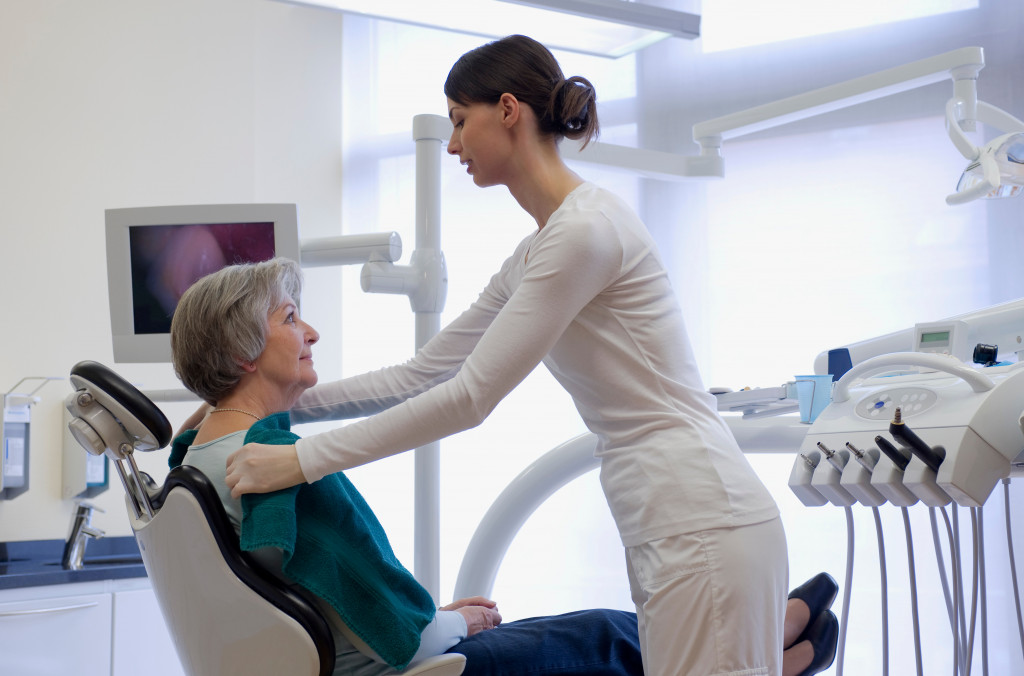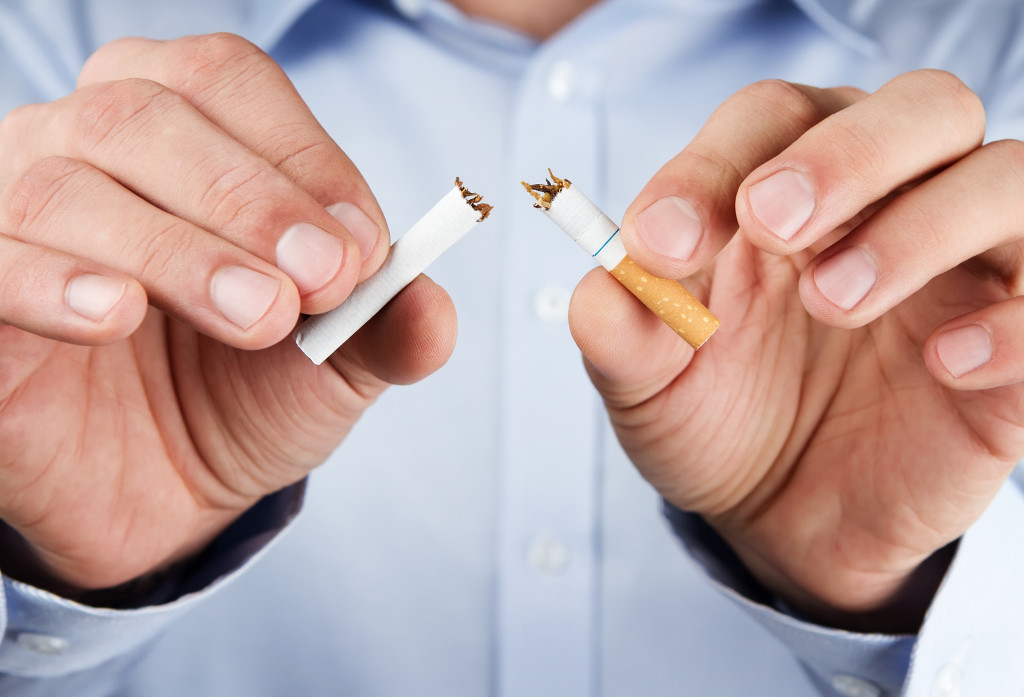- Maintain good oral hygiene, such as brushing twice daily and flossing daily.
- Visit the dentist regularly for dental checkups and cleanings to detect and treat problems early.
- Watch your diet and avoid acidic and sugary foods. Choose foods that are rich in vitamins and minerals instead.
- Quit smoking to reduce the risk of gum disease and tooth loss.
- Wear a mouthguard when necessary to protect your teeth from sports-related injuries and grinding.
As you grow older, your body goes through many changes, and your teeth and gums are no exception. According to dental experts, more than half of adults over 65 have lost six or more of their teeth. Tooth loss can be caused by various factors, such as gum disease, tooth decay, and injury. Fortunately, you can take steps to prevent further tooth loss as you age. This post will discuss some of the best ways to keep your teeth and gums healthy and help you maintain your beautiful smile for years.
1. Maintain Good Oral Hygiene
The key to maintaining strong and healthy teeth, regardless of age, is good oral hygiene. Brushing your teeth twice daily with fluoride toothpaste and flossing daily are essential to prevent tooth loss. It’s also important to rinse your mouth with an antiseptic mouthwash to reduce the bacteria that can cause gum disease, tooth decay, and bad breath.
Properly cleaning your mouth can help prevent plaque buildup, a major cause of tooth loss. Try to brush your teeth after meals to keep them clean and healthy. This simple step can help prevent plaque from forming, which can lead to tooth decay and gum disease.

2. Visit Your Dentist Regularly
Regular checkups and cleanings can also catch potential issues before they become bigger, so visit your dentist every six months. The dentist or hygienist will inspect your teeth and gums for any signs of decay or infection during your appointment. They can also provide professional cleanings to remove any plaque or tartar buildup. If you already have missing teeth, your dentist can recommend restorative treatments. Here are some of your options:
a. Dental Implants
Dental implant surgery replaces missing teeth with artificial roots and crowns. The artificial tooth is surgically placed into the jawbone, where it fuses to become a permanent part of your mouth. Implants are a great long-term solution for missing teeth and help you maintain proper oral hygiene.
b. Dentures
Dentures are another option for replacing missing teeth. They are removable prosthetic devices that can be removed from your mouth as needed. Dentures are often made of acrylic resin and can be custom-made to fit your mouth perfectly.
c. Bridges
Dental bridges are a practical solution if you only have a few missing teeth. A bridge is a false tooth held in place by two crowns on either side. The crowns are anchored to the healthy teeth next to the gap, and the false tooth fills the space.
d. Partial Dentures
Partial dentures are an excellent option for people with a few missing teeth but still have some natural teeth remaining. Compared to full dentures, partial dentures are more comfortable and less expensive.
3. Watch Your Diet
What you eat can play a significant role in the health of your teeth and gums. Sugary and acidic foods and carbonated drinks can be especially harmful to your teeth and contribute to tooth decay and gum disease. On the other hand, foods rich in vitamins and minerals, including calcium, phosphorous, and vitamin D, can help strengthen your teeth. These nutrients are found in dairy products, leafy greens, nuts, fish, and eggs.

4. Quit Smoking
Smoking has numerous adverse effects on health and is a significant risk factor for tooth loss. Smoking increases your risk of gum disease, the leading cause of tooth loss in adults. It also reduces blood flow to the gums, slowing the healing process and reducing the effectiveness of specific dental procedures. If you’re a smoker, consider quitting, or talk to your doctor about smoking cessation methods.
5. Wear a Mouthguard
If you play sports or grind your teeth at night, wearing a mouthguard is essential to protect your teeth. Sports-related injuries and clenching or grinding can weaken your teeth and make them more prone to decay, gum disease, and tooth loss. A custom-fitted mouthguard from your dentist can provide comfortable and effective protection for your teeth. This simple preventive measure can help you keep your teeth in top shape.
Tooth loss is a common problem among older adults, but it’s not an unavoidable part of aging. By following good oral hygiene habits, visiting your dentist regularly, watching your diet, quitting smoking, and wearing a mouthguard when necessary, you can maintain a strong and healthy smile for many years. If you are concerned about tooth loss, talk to your dentist about the best preventive measures for your needs. With proper care and maintenance, you can keep your beautiful smile for longer.

